The wooden ship is the talk of the town. When the beautiful large three-master arrives at the unnamed port (maybe Hamburg, the author’s home city), the citizens are more than a bit puzzled. The wooden ship is all teak and oak and it looks much too elegant to be an ordinary freighter. (Hans Henny Jahnn, the author of The Ship, was not only a famous organ-builder but also the son of a ship carpenter, which helped him to make the description of the ship so convincing.)
Unknown cargo is unloaded, the owner is dismissing the crew and leaving just two guards (with whom he drinks almost every night on the ship). After a while a new crew is hired and under the supervision of a person who is referred to as the Supercargo – later we learn that his real name is Georg Lauffer – , the new cargo is being carried to the ship without further investigation by the customs.
And here, at the latest, it dawns on the reader that something must be wrong with the ship: neither the content of the coffin-shaped crates nor the destination of the ship are known to the crew or even the captain, and during the process of carrying the crates it comes to an eruption of violence from the side of the Supercargo. The reasons why he lets part of the crew to be beaten up are not exactly clear, but as a result part of the sailors are dismissed and replaced by seamen who will not ask questions and who will stay away from the mysterious cargo.
These events give the author an opportunity to make the reader familiar with his opinions about life in general:
“A human being who has suffered a disappointment turns to the laws of physics. A child who has just burned himself with a glowing red ember, tries, cautiously, to see if a stick of red sealing wax will injure him in the same way. And if Providence intends to give him a thorough knowledge of life, she lets him make the same test at regular intervals. And perhaps he will gain the knowledge that the red stuff—which is apparently always the same—is sometimes hot, and sometimes cool. And a small corner of the veil of What Happens if lifted. He looks into the abyss of causality and can see the face of time as a reflection of eternity. Certainty becomes questionable, the riddle more powerful than knowledge. He will no longer trust the chance that might burn him.”
“And a wave of primitive remembrance came over them, the beginning of all thought and its magical expiration, which came out of the darkness of the room. Laws, still unclear which must therefore have been repealed. Metals, malleable as wax, melted in fire and not congealed. Wood as pliable as a reed. Bodies that have no weight, no face. Stones that can float. Magnetic mountains. A reversal of the senses. The vast kingdom of the unreliable.”
“The lights were on in the great sky dome, flickering in infinite space. Their cold glow, uplifting the heart or destroying it, conveyed the deceptive marvel of edifying ideas. Millions of human beings—and who knows if the animals don’t do the same thing—look up at the night with uncomprehending eyes and turn inward to a forlorn or frightened breast, their own. They see themselves as chosen or rejected. Or what is far away is as far away for them as it pretends to be. It does not penetrate the miasma of their martyred blood. And then again storms spread their noise across the vapors of the earth. Now it was the gleaming dew of loneliness that trickled down upon it.”
“Just as the pit of a mine was a hollow amid rock, a ship was a hole in the water in which lungs could breath. A human being had to fear mountains and water.”
“The conclusion is inescapable that he must have been jammed into the space or sucked up. The wall has to be there.”
“We have witnessed the horrible again and again, a transformation no one could foresee. A healthy body is run over by a truck, crushed. Blood, once secreted, once feeling its way blindly through the body, pulsating in a meshwork of thin streams, spreading the chemically charged hormones and their mysterious functions like a red tree inside man—this blood now runs out shapelesssly in great puddles. And still no one grasps that, in a network of veins, it has form. But even more horrible—the death struggle itself, in which the innumerable organs, which we believe we feel, take part. Terror is stronger in us than delight.”
“The miracles of life turn out to be preparation for a gigantic disillusionment and at the end stands old age. Extraordinary things are nothing but steps that lead to crime, and the corruption of the senses seems to be the order of the day.”
“When we begin to think… we are more naked than at birth and more helpless. And we are strangled in the noose of the shriveling umbilical cord.”
The captain of the ship, Waldemar Strunk, is bringing his daughter Ellena on board, because he doesn’t want to leave her alone at home. Her fiance Gustav Horn decides to come on board as a stowaway. When the ship is leaving port, the owner is mysteriously missing, and Gustav and Ellena are suspecting that for some unknown reason the owner might also be on board as a stowaway.
The ship is becoming more and more a mystery to the passengers and the crew. While Ellena and Gustav are in Ellena’s cabin, they realize that the lock is not working properly, and thus the secret of Gustav is uncovered by the Supercargo. After it is officially known that Ellena’s fiancee is on board, Gustav is walking around on board and makes the acquaintance of the crew. Some characters, like the cook, the ship’s carpenter Klemens Fitte, and the youngest sailor Alfred Tutein (who whispers on several occasions “Danger!” into Gustav’s ear) are introduced more closely. Between Gustav and Tutein there seems to grow a strange mutual attraction, although we readers can only guess the nature of this obvious attraction.
Gustav, the main figure of the novel, is listening full of fascination to the stories of the primitive, vital and virile sailors. This is a simple world where the men are following their animal instincts, a world that is completely new to the educated Gustav.
“And he discovered that he was inferior to these men. They had had experience in every direction. At fourteen they had already mistaken the joys of Hell for the bliss of Paradise, and, later, stood again and again with empty hands in a completely illuminated world . . . Gustave envied them, not for their miserable experiences, but for the particular smell of reality which would never be his because he didn’t have the courage, wasn’t sufficiently carefree, to let himself be torn to shreds for no good reason.”
At the same time, some process of estrangement seems to take place between Gustav and Ellena, who is meeting the Supercargo several times without Gustav’s knowledge. Gustav becomes jealous when he realizes that his fiancee has secret conversations with Lauffer, because he is suspecting that there is much more to them than Ellena wants to make him believe.
“‘You are suffering,’ she said simply. ‘Why?’
‘I can present my parables in a different connection or in a different order,’ he said. ‘Millions of ears hear the magical sound of universal sadness, true or false, and fall prey to it. There exists only one pain, one passion, on death. But they glitter limitlessly in infinity, in motion everywhere. And every ray, the known and the unknown, hums this consuming rhythm, this melody of downfall. He who lays himself open to it founders, goes up in flames, succumbs. Perhaps the greatest work of art is the masterpiece of omnipotence which is everywhere with a soft voice. And we, its servants, are being summoned to all things at every moment. But often we refuse. We shut ourselves off. But when are we so completely healthy or invulnerable that pain cannot reach us? When could we call ourselves out of the reach of death? Where is there peace and justice, a condition without condemnation, that we could let sadness go from us with impunity?’
‘That is a theory of how suffering spreads on this earth, from the stars or from somewhere or other.’
‘But I don’t want it that way,’ he said. ‘I want to experience everything but I want to remain as virtuous as matter, which is unaware of its own manifestations. I want to stand at my own side when I scream or sink to the ground in convulsions. I am not prepared to let myself be put on trial as to whether I am a useful or an objectionable male animal. I have come into being and intend to make myself at home in the condition as I please. I don’t escape the voice, I swing and twitch with it, but I don’t want to feel it as everybody else feels it.’
‘You are crying.’ The words come from her forced.
‘I know,’ he said. ‘But it doesn’t mean anything to me.’ “
Things are escalating quickly after the illiterate carpenter Klemens Fitte, the son of a prostitute, is telling one of the strangest stories you will ever read in your life: the story of Kebad Kenya, a man who wants to be buried alive and who makes his neighbors who will inherit his big fortune kill his favorite horse without any apparent reason.
“After all, it was his intention to die without the help of death, and the effort to become motionless and cold took every ounce of his vigilance and strength.”
The story of Kebad Kenya leads the sailors to suspect that the coffin-shaped crates contain dead (or living) human bodies and they rush to break into the cargo room and open the first crate that proves surprisingly to be empty.
Ellena disappears suddenly after a visit at the Supercargo’s cabin. Is she hiding in the ship? Has she jumped over board? Was she killed – and by whom? A search is started during which the ship is so damaged that it is sinking and the crew has to be evacuated. Most of them will be saved by an approaching ship, but Ellena’s fate remains a secret and mystery.
“Then it was over. They climbed across the cargo toward the door by which they had entered. Gustav, in a last effort to come closer to the content of the cargo, threw himself down on one of the coffin-like crates. He made the effort, even if with dwindling will power and filled with a premonition of futility, to establish some sort of relationship with the mysterious thing. It seemed foolish to him, an error of human perception, that anything could remain hidden which could be approached until only a few centimeters lay between. But it was the usual thing to be struck with blindness. Who could recognize the sickness of his neighbor with his eyes even though it lay palpable under the skin? When Gustav arose from the crate a few seconds later, he had assured himself that the icy aura which filled the hold had infected the crates or, perhaps, they were its sources. He felt as if he had thrown himself down on the snows of a wintry field. And a white wraith of cold crept up to him.”
This lengthy synopsis doesn’t answer the question what happened to Ellena because The Ship (the title should be The Wooden Ship – in German it is Das Holzschiff and not Das Schiff) is just the overture to a true monster of a novel. Fluss ohne Ufer (River Without Banks) has about 2500 pages of which only the first part is translated into English.
True, The Ship is a stand-alone novel. But still it is such a pity that this great and in many ways unique novel is not available in English. (It has been translated to French though).
It’s author, Hans Henny Jahnn, was a unique figure, and the book is unlike any other book you will come across during your life. In a way, it is devastating and it might be one of these books that have the potential to change your life.
In Jahnn’s world there is no God, no metaphysics. Traditional concepts of moral, guilt, progress, are rejected. Man is not superior to the rest of the creatures, the animal is his equal and in many ways even superior. (Jahnn was an early advocate of animal rights and also a leading figure in the movement against nuclear arms).
That Jahnn’s novels, plays and stories are full of controversial topics like sado-masochism, homo- and bi-sexuality, incest and others that will repel a part of the readership, did not exactly help his popularity. But this is a pity, because despite all that, Jahnn is such a great author. Other reasons why Jahnn is not popular were given by literary critic Ulrich Greiner in his essay “The seven deadly sins of Hans Henny Jahnn”. He writes:
“There is no consolation. “It is what it is, and it is terrible.” No God is conceivable, enlightenment a fiasco, reason only a flatus vocis, progress a catastrophic joke. No matter in which direction Jahnn thinks, no matter which ways his painful heroes are pursuing, no matter which vision is lighting up in the moment: the aporia is indissoluble, the novel cannot be concluded, the artistic effort a failure. At the end, there is only darkness. That leaves a bitter taste. This is not very digestible.”
Many of the mysteries of The Ship are uncovered in the untranslated part of River Without Banks. Where is the publisher that makes this masterpiece that has no similarity to any other novel, available to anglophone readers?
I intend to return later to the untranslated part of the novel.
Hans Henny Jahnn: The Ship, translated by Catherine Hutter, Peter Owen 1970
© Thomas Hübner and mytwostotinki.com, 2014. Unauthorized use and/or duplication of this material without expressed and written permission from this blog’s author and/or owner is strictly prohibited. Excerpts and links may be used, provided that full and clear credit is given to Thomas Hübner and mytwostotinki.com with appropriate and specific direction to the original content.

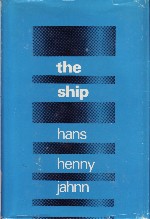


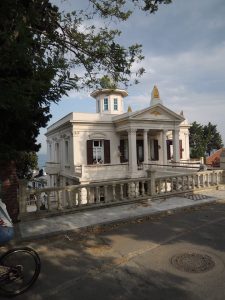
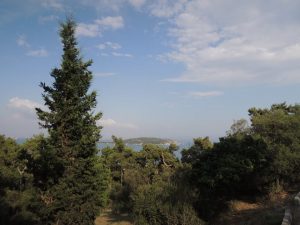
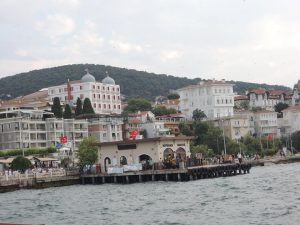
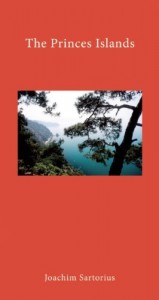
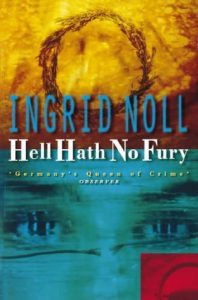
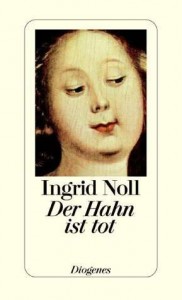
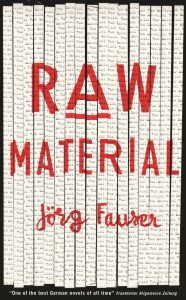
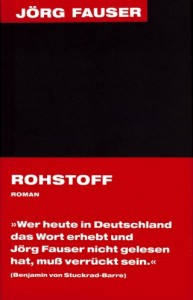
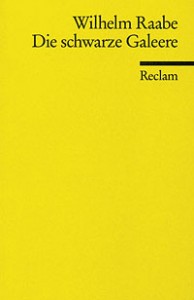
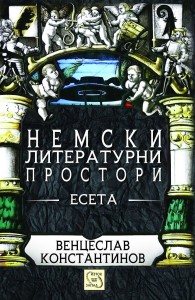



 Facebook
Facebook RSS
RSS Twitter
Twitter